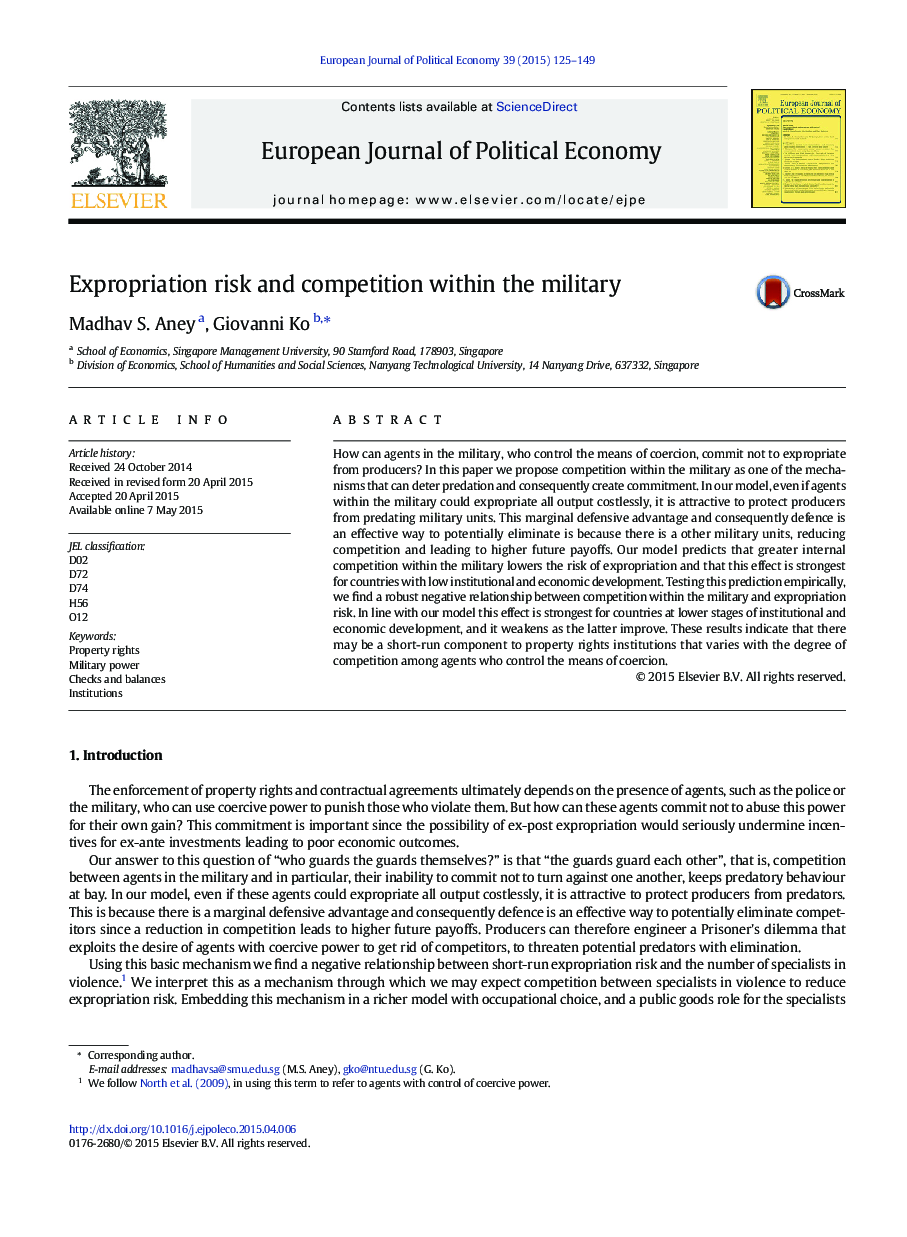| Article ID | Journal | Published Year | Pages | File Type |
|---|---|---|---|---|
| 5067930 | European Journal of Political Economy | 2015 | 25 Pages |
â¢We model competition among agents with coercive power and its effect on investment incentives.â¢Competition among these agents deters full expropriation even in a one shot setting.â¢The effect of competition on expropriation risk decreases with institutional quality.â¢We discover a robust empirical relationship that is consistent with this prediction.
How can agents in the military, who control the means of coercion, commit not to expropriate from producers? In this paper we propose competition within the military as one of the mechanisms that can deter predation and consequently create commitment. In our model, even if agents within the military could expropriate all output costlessly, it is attractive to protect producers from predating military units. This marginal defensive advantage and consequently defence is an effective way to potentially eliminate is because there is a other military units, reducing competition and leading to higher future payoffs. Our model predicts that greater internal competition within the military lowers the risk of expropriation and that this effect is strongest for countries with low institutional and economic development. Testing this prediction empirically, we find a robust negative relationship between competition within the military and expropriation risk. In line with our model this effect is strongest for countries at lower stages of institutional and economic development, and it weakens as the latter improve. These results indicate that there may be a short-run component to property rights institutions that varies with the degree of competition among agents who control the means of coercion.
